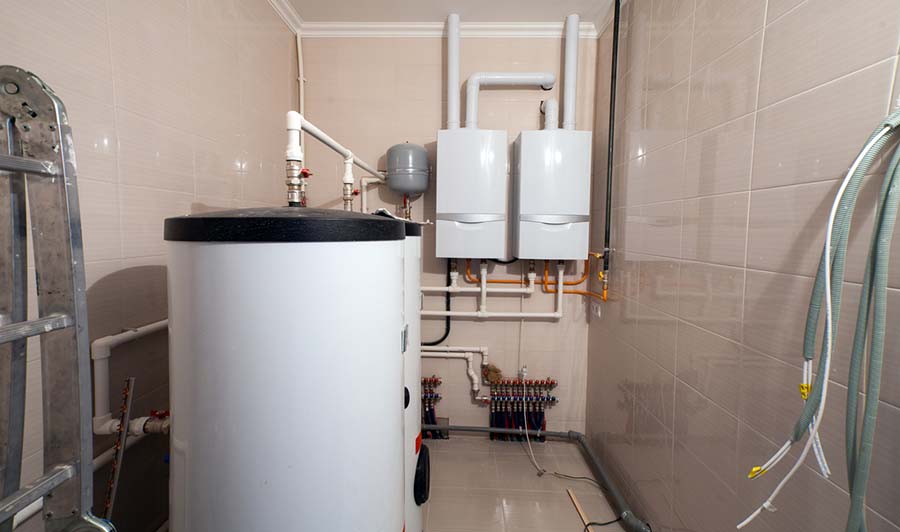Dealing with the Frequently Arising Water Heater Urgent Problems
Dealing with the Frequently Arising Water Heater Urgent Problems
Blog Article
What're your concepts on The Importance of Water Heater Maintenance?

A water heater is just one of one of the most crucial fundamental home appliances that can be found in a residence. With hot water heater, you don't require to undergo the stress of home heating water manually each time there is a demand to wash, do the laundry, or the recipes. There is constantly a possibility that your water heating system would certainly act up as with many mechanical tools.
It is very important to keep in mind any kind of little malfunction as well as tackle it rapidly prior to points leave hand. The majority of times, your water heater begins to malfunction when there is a build-up of debris as a result of continual usage. As a precaution, periodic flushing of your water heater is recommended to prevent sediment buildup and also protect against useful failing.
Usual hot water heater emergency situations and also exactly how to take care of them
Too little warm water
It may be that the water heating unit can not sustain the hot water need for your apartment or condo. You could update your water heating unit to one with a bigger capability.
Rising and fall water temperature level.
Your water heater could start generating water of different temperature levels generally ice cool or hot hot. There may be a need to replace either the home heating or the thermostat device of your water heating system.
Leaking water heater storage tank.
In this scenario, you should transform off your water heating system, permit it to cool down, and carefully look for the source of the issue. At times, all you require to do is to tighten a few screws or pipeline links in cases of small leakages. If this doesn't work as well as the leakage continues, you could require to employ the solutions of a technician for a proper replacement.
Stained or smelly water
When this takes place, you need to know if the problem is from the container or the water source. If there is no amusing odor when you run cool water, then you are particular that it is your water heating system that is faulty. The stinky water can be created by corrosion or the build-up of germs or debris in the water heating unit tank.
Final thought
Some home owners disregard little warning and also minor faults in their water heater unit. This only leads to more damages and also a feasible complete breakdown of your appliance. You must manage your water heater mistakes as soon as they come up to prevent more costs as well as unnecessary emergency problems.
With water heating units, you do not need to go via the anxiety of home heating water manually every time there is a demand to take a bath, do the laundry, or the dishes. It may be that the water heating unit can not support the warm water need for your home. Your water heater could start creating water of various temperature levels usually ice scalding or cool warm. If there is no funny smell when you run cool water, then you are specific that it is your water heating system that is malfunctioning. The odiferous water can be triggered by rust or the build-up of germs or sediments in the water heating unit storage tank.
Common Water Heater Issues and What You Should Do
What Type of Water Heater Do You Have?
Before we begin it’s first important that you identify the type of water heater you have on your property. There are two main types of water heaters out there: conventional and high efficiency.
Both of these types of products typically use either gas or electricity to heat power. There are also solar water heaters that use a thermal collector on the roof or yard to heat the water.
While these models are not as common, they can cut heating costs in half. In this article, we will focus on conventional and high efficiency.
How Do My Electric and Gas Water Heater Work?
Though they look similar, electric and gas water heaters work very differently. It’s important to know their basic function because often problems can be specific to the heating source.
In the electric model, a thermostat on the side of the machine detects the temperature of the water in the tank. When the temperature needs to rise electricity flows to a heating element suspended in the water.
Gas models also use a thermostat device — typically with a mercury sensor at the tip and an additional sensor called a thermocouple. The thermocouple detects whether the pilot light is on and controls the flow of gas.
When the thermostat drops below the appropriate level gas is released which becomes ignited by the pilot light. The flame heats the bottom of the water tank which causes hot water to rise and cold water to drop.
This natural circulation continues until the water reaches the desired temperature. Then, the thermostat triggers the gas control valve to shut off the flow of gas.
What Are the Most Common Issues and How Do You Fix Them?
https://happyhiller.com/blog/common-water-heater-issues-and-what-you-should-do/

I discovered that review on Is Your Water Heater Leaking? while doing a search on the internet. Do you know about somebody else who is occupied with the subject? Please feel free to share it. I value reading our article about Warning Signs You Need Water Heater Repairs.
Schedule Service Now Report this page